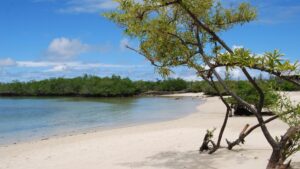Chile, with its unique blend of natural wonders and rich cultural heritage, stands out as an irresistible destination in South America. At Responsible Travel, we provide all the information you need to ensure your journey to this fascinating country is safe and memorable.
Entry and Exit Requirements
Entrance:
- Passport: It must be valid for at least six months from the date of entry.
- Visa: Depending on your nationality, some visitors will require a visa.
- Tourist Card: This document is issued upon entry into the country and must be kept to be presented upon departure.
Exit:
Submit the Tourist Card to immigration personnel at the airport or border post.
List of countries that require a visa to enter Chile
Here we present a complete list of countries whose citizens need to obtain a visa before exploring the wonders of this South American country:
| Afghanistan | Botswana | Corea del Norte | Gambia | Kazajstán |
| Angola | Brunei | Gabón | Ghana | Kenia |
| Arabia Saudita | Burkina faso | Côte d'Ivoire | Guinea | Kirguistán |
| Argelia | Burundi | Cuva | Haiti | Kiribati |
| Armenia | Cabo verde | Djibouti | India | Kosovo |
| Azerbaiyan | Camboya | Dominica | Irak | Kuwait |
| Bahrein | Cameroon | Egypt | Iran | Laos |
| Bangladesh | Catar | Eritrea | Islas Comoras | Lesoto |
| Belarús | Chad | Esuatini | Islas Marshall | Liberia |
| Benin | Congo | Ethiopia | Islas Salomón | Líbano |
| Bhután | China | Philippines | Jordania | Libya |
| Madagascar | Malawi | Maldivas | Malí | Marruecos |
| Mauritania | Micronesia | Mozambique | Myanmar | Namibia |
| Naurú | Nepal | Nigeria | Omán | pakistan |
| Palaos | Palestina | Papua | Nueva guinea | Rep. Dominicana |
| Duanda | Samoa | Senegal | Seychelles | Syria |
Language
The official language is Spanish. Although in major cities and tourist destinations many guides and hotel staff speak English, it is helpful to learn basic phrases in Spanish.
Time Zone
Chile has three time zones:
- Easter Island: UTC -5 (daylight saving time) / UTC -6 (standard time).
- Continental Chile and Patagonia: UTC -3 (daylight saving time) / UTC -4 (standard time).
Currency
The official currency of Chile is the Chilean peso (CLP). It is easy to exchange US dollars and euros at exchange offices and banks. In addition, credit cards are accepted in urban and tourist areas, but it is always advisable to carry cash for expenses in markets and rural areas.
Connectivity
Regarding connectivity, Wi-Fi is free in hotels, restaurants, and some cafes; however, keep in mind that it may be limited in rural areas. Operators such as WOM, Movistar, and Entel offer prepaid SIM cards with mobile data for tourists. Note that cellular signal may be limited in mountainous or remote areas.
Plugs and Adapters
The voltage used in Chile is 220V at a frequency of 50Hz, and the plugs you will find there are Type L and Type C. Adapters will be necessary for travelers from countries with 110V voltage or Type A/B plugs.

Health and Safety
Vaccinations
Hepatitis A and B.
Tetanus and diphtheria.
Yellow fever, if traveling from areas where this disease is endemic.
Insect-Borne Diseases
In general, Chile has a low risk of insect-borne diseases. However, in the Altiplano region, some mosquitoes may be present; use repellent as a preventive measure.
UV Rays and Altitude
- UV Rays: Chile has high sun exposure, especially in the Atacama Desert and high-altitude areas. Use broad-spectrum sunscreen, UV-filter sunglasses, and a hat.
- Altitude: Some areas, such as San Pedro de Atacama and the Andean Altiplano, are above 2,500 meters. Rest upon arrival and stay hydrated to avoid altitude sickness.
Healthcare System
Medical centers and private clinics in major cities such as Santiago provide high-quality care. However, infrastructure in rural areas may be limited. It is essential to have travel insurance that covers medical emergencies. Pharmacies are common in both urban and rural areas; however, some medications may require a prescription.
Emergency Numbers:
- National Police (Carabineros): 133
- Ambulances: 131
- Fire Department: 132





